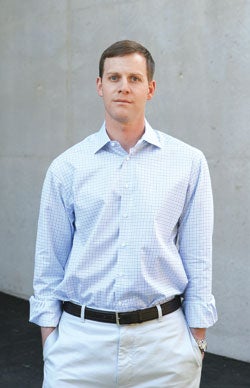Daryl Levinson, the Fessenden Professor of Law, joined the Harvard Law School faculty in 2005. He teaches and writes primarily about constitutional law and theory. He has been tasked by Dean Elena Kagan ’86 with helping students and alumni who want to become law professors. In the latest issue of Harvard Law Today, he answered some questions about how students — and alumni — can become legal academics.
Q: Is it ever too late to consider switching to legal academia?
A: No, never too late; though it may get harder the longer you wait. Most people who become law professors aren’t sure they want to be academics until after they get their law degrees, and many come to academia after some years—sometimes many years—in practice. There are advantages and disadvantages to waiting. On the one hand, law schools value the experience and expertise of high-level practitioners. On the other hand, people who have been out of law school for a number of years are going to face some challenges in making the transition. Maintaining connections to faculty recommenders is crucial, but more difficult as the years go by. Practicing lawyers tend not to have lots of spare time to keep up with scholarship or work on their own articles. And as much as practical experience can be enriching to legal scholarship and teaching, thinking like a practitioner can sometimes become a barrier to thinking like a scholar.
I think these challenges explain why very few people hired as law professors have been out of law school more than 10 or 15 years, but HLS is trying to think creatively about helping experienced practitioners overcome them. For instance, we’ve created a new visiting assistant professor position, aimed at people with substantial legal experience (at least three years beyond clerking) who want to give academia a try.
Q: How long are the odds for alumni becoming law professors?
A: At first glance, the numbers look daunting.There might be as many as 1,000 applicants for entry-level teaching jobs each year, and maybe 150 of those will get jobs. But for Harvard graduates, the odds are a lot better. HLS places more of its graduates in teaching than any other school—yes, including Yale—and in recent years, Harvard J.D.s have accounted for 15 to 20 percent of all hires. I think that any HLS grad who is serious about an academic career and has done the basic things necessary to prepare for the teaching market—securing one or two faculty recommenders, writing at least one scholarly paper, and developing some familiarity with the scholarly literature in the field she wants to teach and write in—can expect to land a good teaching job.
Q: How important is scholarship relative to teaching experience?
A: Well, most people who get jobs as professors don’t have any law school teaching experience. Interviews and the job talk presentation, where a candidate presents a scholarly work in progress to the faculty and then takes questions, are used to assess whether candidates will be successful in the classroom. Even someone who looks like she’ll be a wonderful teacher will not get a tenure-track job if she demonstrates no promise as a scholar, however. Teaching is important, but scholarship is the sine qua non of academic hiring.
Q: Have the qualifications changed?
A: Yes, a lot, over the past 25 years or so. It used to be that people were hired to teach primarily based on how successful they were as law students, based on grades, law review membership, clerkships with prestigious judges and the like. Those kinds of credentials still matter, but they’re much less important than they used to be. As law schools have become more focused on scholarship, and particularly on interdisciplinary forms of scholarship, they have figured out that the traditional indicia of law school success aren’t very good predictors of scholarly ability (or teaching ability, for that matter). Better proxies for scholarly talent—most important, the quality and promise of the scholarship that candidates have already written—have become more important. Nowadays, being a straight-A law student is neither necessary nor sufficient for getting a teaching job. There are many HLS grads who did just OK in law school who get first-tier teaching jobs based on their potential as scholars and teachers.
Two more big (and related) changes: An increasing number of entry-level professors have graduate training in an allied field. About 25 percent of entry-level hires these days come with Ph.D.s in economics, history, political science, philosophy and the like. And a rapidly increasing number have completed a post-graduate fellowship program before going on the market. HLS now offers numerous fellowship opportunities geared toward graduates interested in teaching.
Q: You sparked some controversy on blogs with your comments to a group of HLS students about law professors’ professional experience. What did you mean?
The controversy was really off to the side of the advice I was giving students. Lawyers and academics perpetually debate where law schools should position themselves between the world of practice and the university, and people’s view of this debate inevitably informs their preferred approach to faculty hiring. Should law schools be looking primarily for experienced lawyers who can provide skills training to students, or should they be selecting scholars first and foremost?
I wasn’t taking any position in that debate. I was simply describing the world of law schools and academic hiring as it now exists—for better or for worse. It’s undeniable that law schools over the past 25 years have moved further from practice and closer to the university, with all the effects on faculty hiring that I’ve been describing. But even—or perhaps especially—an accurate description of what law schools are looking for is going to provoke those who think law schools ought to be looking for something different. Maybe they should be!
